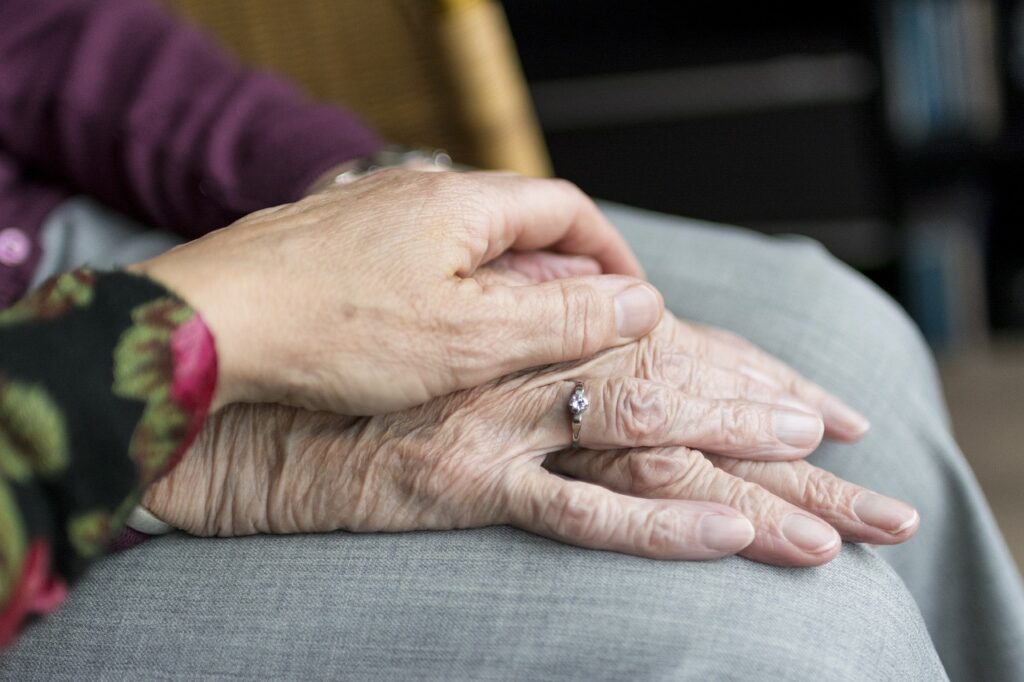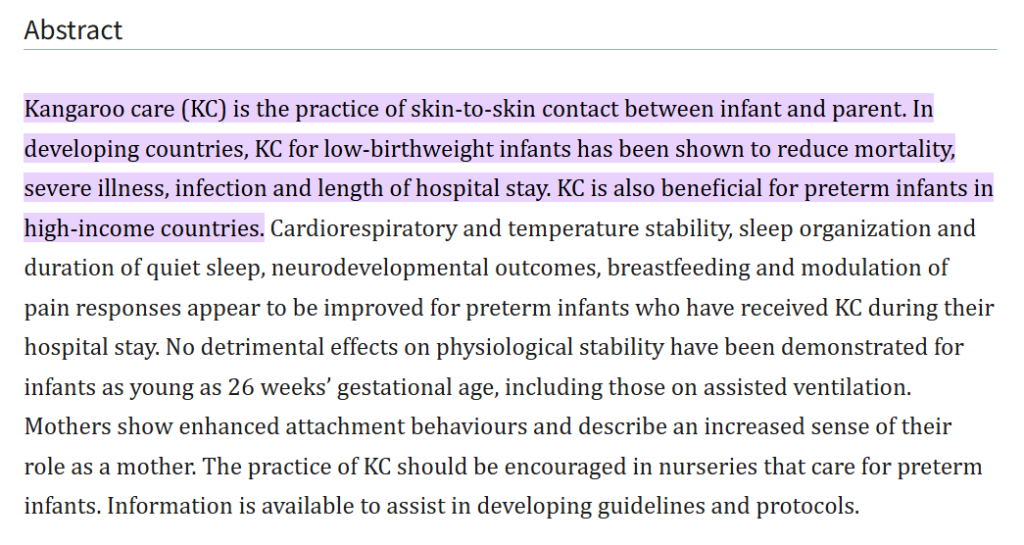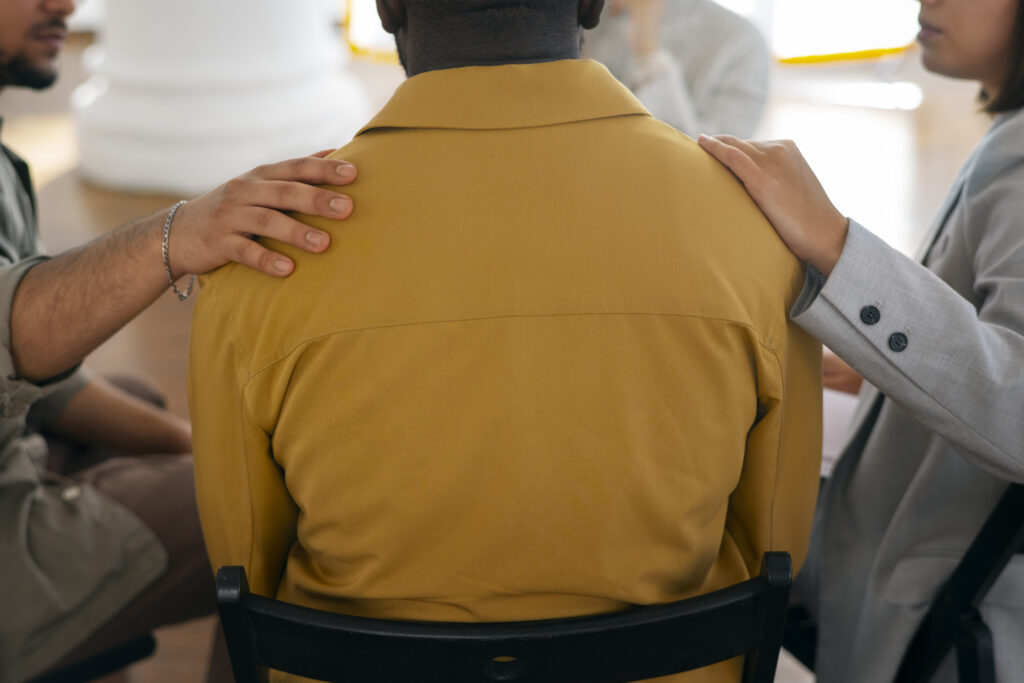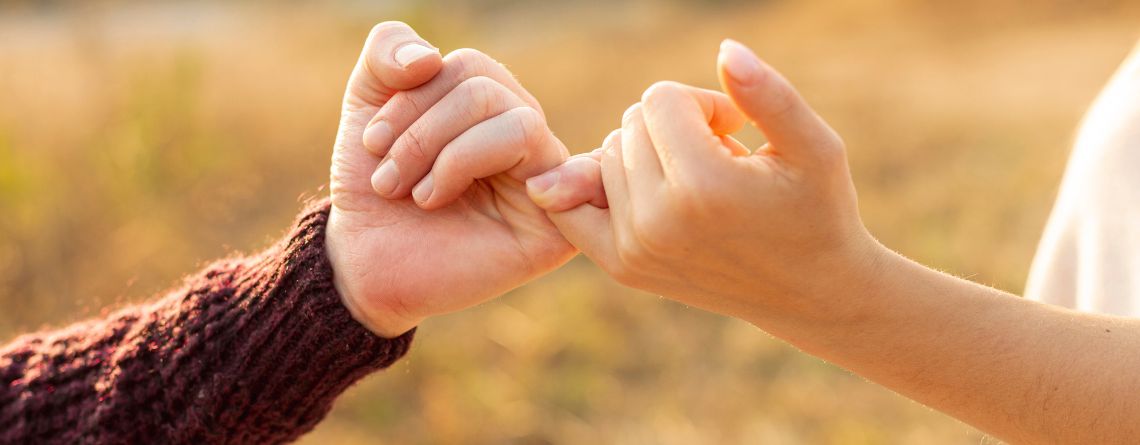Can a Hug Save Your Health? 5 Powerful and Scientifically-Backed Benefits of Human Touch
Let’s take a moment to reflect—how often do we truly connect with someone these days? I’m not talking about sending a text or liking a photo on social media. I mean real connection—a heartfelt conversation, a hug, or simply sitting in someone’s presence without distractions. In today’s tech-driven world, many of us are unknowingly suffering from touch starvation, (lack of human touch and connection) — a global epidemic that’s quietly affecting our physical and mental health.
Yes, the internet and globalization may have made the world feel smaller, but at the same time, they’ve left us more isolated than ever. Think about it: There was a time when people made an effort to stay connected through handwritten letters, family dinners, and regular meetups. Back then, we truly valued and nurtured our relationships. Now, with everyone just a click or call away, we assume connection will happen naturally—but it doesn’t.
This lack of meaningful connection has serious consequences. Studies by the National Institute of Health show that prolonged isolation and the absence of touch can increase stress, weaken immunity, and even lead to chronic health issues like depression and heart disease.

But here’s the thing—we’ve underestimated the profound healing effects of consensual touch. It’s not just about feeling good; these connections have the power to lower stress, reduce inflammation, and even boost our immunity. So, what if the secret to better health isn’t another supplement or workout routine but simply reconnecting—with ourselves, our loved ones, and our community?
The Platonic Nature of Touch
What comes to mind when we think of touching? Is it platonic or intimate? The touch we’re referring to here is not sexual in nature. When we address touch, we’re talking about the simplest of physical cues like:
- Greeting by shaking hands
- Hugging family or friends
- Braiding a loved one’s hair or having your hair combed
- Putting your arm over your sibling’s shoulder
- Walking arm in arm with your best friend
- Sharing a humorous high-five
- Holding hands
and so much more.
When was the last time you simply lay in the grass beside a beloved friend?
Most of us can only think back to our childhood, where we were deeply in sync with our need to comfort and be comforted. With modern mass media, our minds were soon warped and so was the perception of platonic touch.
So why does it feel so safe to have our hair stroked by someone we trust? Why is it easier to release repressed emotions like sadness, grief, fear, and guilt when your loved ones rub your back in comfort?
Do you notice how children are naturally drawn closer to touch your face, hair and snuggle close to bond?
Now, imagine a steady hand on your shoulder; a silent affirmation that things will be fine, no matter how complicated the present moment may feel.

You see, even though we have grown up physically, our need for this comfort and safety never ceases to exist. The innocence behind such touch can heal some of the deepest wounds.
Consent to Touch: Not Just a Nice to Have!
While it is nice to be held, we don’t want to be touched by everyone. It’s common sense that we protect our boundaries and personal space, while respecting the same in others.
While platonic touch is not sexual in nature, it needs consent, no matter if it’s sharing a hug or being held.
It may be triggering to some due to several reasons like what is acceptable platonic touch in their beliefs and culture, a history or trauma or abuse, or simply personal boundaries. It is always a good practice to establish consent by asking, even your child.
Even on the receiving end of platonic touch, at any time, if you feel uncomfortable, please affirm your boundaries in a healthy manner.
Touch Starvation and Skin Hunger: A Modern Epidemic
Since the pandemic passed, along with it came a new normal. Today, we are less predisposed to make physical contact without hesitation. Friends and family don’t hug as much, coworkers shy away from shaking hands, and even doctors don’t use physical touch while examining their patients as often.
Many of us unknowingly suffer from something called ’touch starvation’ or ’skin hunger.’ It’s exactly what it sounds like—a yearning for physical contact that isn’t met.
Modern lifestyles, dominated by screens, remote work, and the societal drift toward isolation, have made meaningful physical touch a rarity for many.
“The universal drug is LOVE. It can make us high and happy, low and sad. It can build us or break us, ecstatic or depressed. It can heal us or make us sick. Channel it and use it to the maximum. Seek love and health and then you have wealth.”
- Luke Coutinho
The pandemic exacerbated this issue, forcing us to limit touch even with those closest to us. Social distancing and quarantine measures were necessary but left a deep void, highlighting just how vital human contact is to our well-being.
The consequences of this touch deficit that continues even four years later are more profound than we realize.
Studies by Medical News Today reveal that a lack of physical touch leads to elevated cortisol levels, the stress hormone responsible for everything from mood swings to suppressed immunity. Over time, this can snowball into chronic stress, depression, emotional dysregulation, and even physical ailments like high blood pressure. Reduced touch also stifles the production of oxytocin, often called the ’love hormone,’ leaving us feeling less connected, less trusting, and lonelier than ever.

Source: Medical News Today
The emotional toll is undeniable. Research shows that people deprived of touch are more prone to anxiety, difficulty in relationships, and a reduced sense of overall well-being. Physical touch isn’t just a nicety; it’s a necessity for thriving in every sense of the word.
The Science of Touch: A Biological Necessity
The human touch isn’t just comforting; it’s deeply therapeutic and is one of the most comforting experiences we can have. Even our beloved pets yearn for close physical contact like petting, hugs, and cuddles–or even if it means sitting close to you. On a biological level, touch sets off a cascade of beneficial responses in the body.

Touch isn’t just something that feels nice—it’s how our bodies are wired to thrive. Think about the last time someone gave you a hug after a tough day. Didn’t your shoulders drop? Didn’t you feel a little more at ease? That’s not a coincidence; it’s science. Let’s break down why it’s so powerful.
The Vagus Nerve Connection
When we experience touch—whether it’s a hug, a gentle pat, or a massage—it activates the vagus nerve, one of the most important nerves in the body. This activation sends calming signals to the brain, lowering heart rate, reducing blood pressure, and releasing tension. The vagus nerve essentially puts the body into ’rest and digest’ mode, countering the stress-driven ‘fight or flight’ state that many of us live in daily. The moment it’s stimulated, your heart rate slows down, your blood pressure drops and your whole body begins to feel at ease. It’s like nature’s way of saying, “Hey, you’re safe.”
Want to activate your parasympathetic nervous system? Try the TTSSS System to alleviate stress and anxiety.
The Oxytocin Effect
Known as the love hormone, oxytocin is released during moments of physical connection, whether it’s holding hands or sharing a heartfelt hug. This hormone doesn’t just make us feel good—it’s a natural stress reliever that reduces cortisol, fosters trust, and enhances bonding. Research shows that even a 20-second hug can flood the body with oxytocin, leaving us feeling calmer and more connected.

The Healing Power of Touch Therapy
The benefits of touch are so profound that they’ve become central to various therapeutic practices. For instance:
- Preterm infants: Studies show that babies born prematurely gain weight faster and show improved development when they receive skin-to-skin contact, a practice often referred to as kangaroo care.

- Massage therapy: A good massage doesn’t just relax your muscles; it also reduces pain, lowers anxiety, and even helps with depression. It’s a reminder that sometimes, healing starts with something as simple as human connection.
Cultural Practices Emphasizing Touch
Touch is universal. Across cultures, people greet each other with hugs, cheek kisses, or handshakes—not just as a formality but as a way to create a connection. Traditional healing practices like Ayurvedic massages or Reiki have long used touch as a way to restore balance and promote wellness. These aren’t just rituals; they’re grounded in the deep understanding of how touch heals both the body and the soul.
Touch is more than skin-deep; it’s a language of care and connection that transcends words, grounding us in a world that often feels disconnected. And while we can’t always control how much touch we receive, even small moments of physical connection can create ripple effects of healing and calm.
The Health Benefits of Physical Contact with Those You Trust
Human connection isn’t just a feel-good factor—it’s a lifeline for your physical and emotional health. Strong, meaningful relationships can transform your well-being in ways you might not expect. Here’s how:
1. Reduced Inflammation
People with strong social ties tend to have lower levels of inflammatory markers, such as C-reactive protein (CRP). Chronic inflammation is linked to conditions like heart disease, diabetes, and autoimmune disorders, so staying connected can literally save your health. Consensual physical contact as simple as sitting beside your loved ones helps your body combat inflammation naturally.
2. Enhanced Immunity
Ever notice how you feel stronger and healthier when you receive a hug or caress from people who care for you? That’s because meaningful relationships enhance your immune system. People with close-knit support systems are less likely to catch colds and other infections. Why? The positive emotional state created by connection supports the immune system’s function.
3. Stress Reduction
Stress is inevitable, but having someone to lean on makes all the difference. Social support like holding hands in solidarity lowers cortisol levels, helping your body stay out of the fight-or-flight mode. A simple touch of comfort from a trusted friend can help calm your nerves, regulate your heartbeat, and improve your overall stress response.

4. Lower Risk of Depression and Anxiety
Loneliness is more than just a feeling—it’s a health risk. In the last 13 years of our experience working with patients, we’ve observed that people who experience chronic loneliness are at higher risk for depression, anxiety, and even early mortality. On the flip side, receiving an embrace from your relatives, friends, or partner acts as a protective shield for your mental health.
5. Improved Longevity
Want to live longer? Stay connected to people who reciprocate your love, respect, and affection. People with strong social networks have a significantly lower risk of premature death. The emotional support and shared joy that come from meaningful relationships are powerful factors in enhancing life expectancy.
Ways to Find Comfort and Ease When You’re on Your Own
Being physically alone doesn’t mean you can’t create moments of comfort and connection for yourself. Here are some simple, nurturing ways to embrace your senses and soothe your body:
- Let Warmth Hold You: Take a long, warm shower and let the water become your blanket. Feel it washing over you, carrying away the tension. You might even close your eyes and savor the steam, like a comforting hug for your entire being.
- Heated pads and bottles: Try sleeping with a heating pad if you’re feeling anxious, sad, or depressed.
- A Cup of Calmness: Hold a warm cup of tea, coffee, or even hot water. Wrap your hands around it and feel the warmth radiate, grounding you in the present moment.
- Textures That Soothe: Snuggle into a fuzzy blanket, silky sheets, or your favorite cozy sweater. Let the textures calm your senses and remind you that comfort is within reach.
- Create With Your Hands: Knead dough or work with clay—there’s something deeply satisfying about feeling it transform under your fingers. Let the process ground and connect you.
- Indulge in Self-Care: Pamper yourself with your favorite lotions, bath oils, or bath salts. These small sensory pleasures can feel like acts of love toward yourself.
- Weighted Blanket: If you have a weighted blanket, let it wrap you in a sense of calm and security, like a gentle embrace.
- Self-Touch Practices: Massage your hands, face, or feet—intentionally and lovingly. Or roll a tennis ball under your foot to release tension and bring focus to how good relief feels.
- Connect Through Companionship: If you have a pet, take a moment to cuddle them. The simple act of stroking a dog’s fur or hearing a cat purr can soothe loneliness. Considering adopting a furry friend? It’s a beautiful way to offer and receive love. Just be mindful of the responsibility and commitment it entails—animals are lifelong companions, not temporary fixes.
Your physical and emotional needs deserve attention, even in solitude. These small acts of care can be the connection you need to feel supported and grounded, even when no one else is around.

Final Word: Connection as a Core of Wellness
Connection is the glue that holds us together, both emotionally and physically. Whether it’s the comfort of a hug, the laughter of a shared moment, or the strength of a support system, a gentle, safe, touch is the most powerful healer.
Watch the full video here:
Let’s make connection a priority—not just an afterthought.
Ready to make your health your priority?
Start your journey with one positive action today.
Check Out Our Wellness Program.
Looking for personalized advice? Our experts are ready to help you thrive.
Reach Out to Team Luke’s Integrative Health Coaches!
Book a one-on-one with our team: 1800 102 0253 or write to us at consults@lukecoutinho.com.
|
From a pimple to cancer, our You Care Wellness Program helps you find a way Talk to our integrative team of experts today 18001020253 |










Leave a Reply